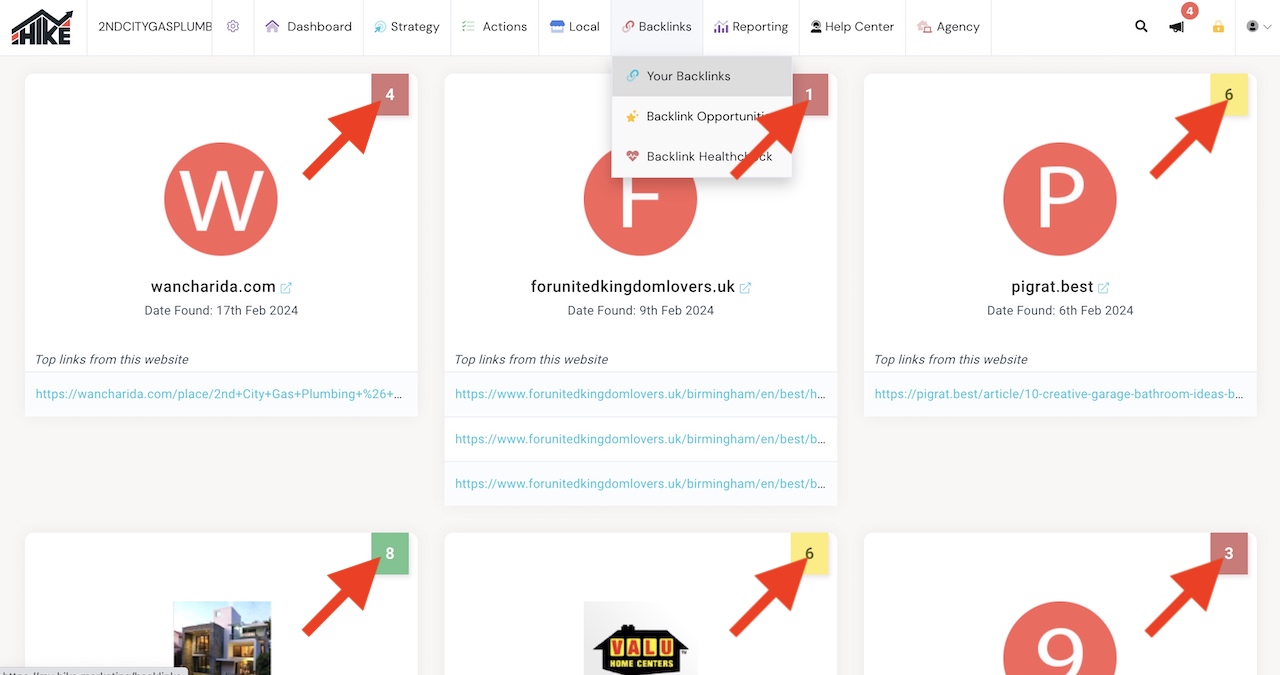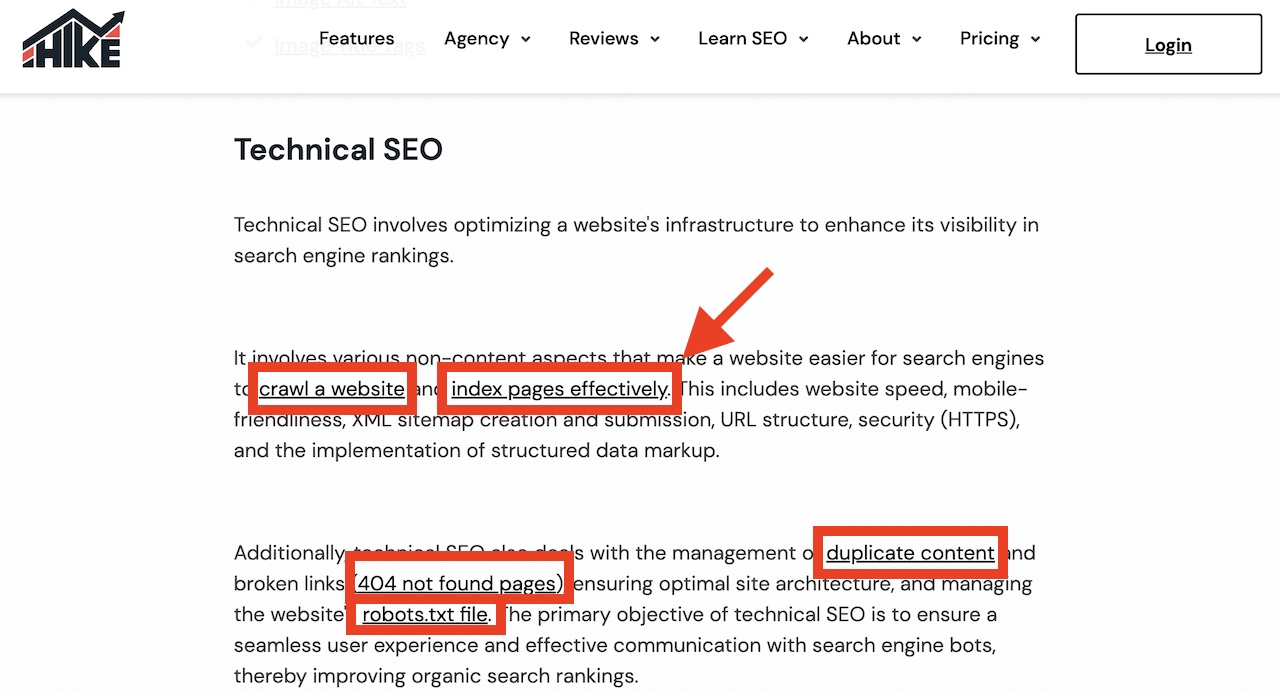Maximizing Link Equity: A Beginner's Guide
You're diving into the backbone of search engine optimization. Think of link equity as the reputation and influence your website gains through backlinks from other sites. These links act like upvotes, boosting your site's credibility in the eyes of search engines. By grasping how link equity flows through the internet, you gain insight into enhancing your site's visibility and ranking potential. Stay tuned to unravel the mysteries behind this crucial SEO concept.
Understanding Link Equity
The more quality backlinks you have, the higher your link equity will be. This means search engines like Google will view your site as more authoritative and trustworthy.
Assessing authority is one of the key factors that influence link equity. Websites with high authority passing links to yours can significantly boost your own authority and credibility. On the other hand, low-quality or spammy backlinks can harm your link equity and SEO efforts. There are two popular metrics for measuring authority: Domain Authority, and Page Authority.
Evaluating relevance is equally important. Backlinks from websites related to your industry or niche are more valuable than those from unrelated sites. Search engines analyze these connections to determine how relevant and reliable your content is, impacting your overall SEO performance significantly.
For example, in Hike SEO's platform where you can view your backlinks, you can see the authority score (out of 10) for websites that have a backlink pointing to your website:

Types of Links
Understanding the different types of links is crucial. Internal links are those that connect pages within your website, helping users navigate and search engines understand your site's structure better. By strategically placing internal links, you can boost the visibility and authority of specific pages on your site.
External domains play a significant role in link equity as well. These are links from other websites pointing back to yours. When reputable websites link to your content, it signals to search engines that your site is trustworthy and authoritative. This can positively impact your SEO efforts by improving your site's ranking in search results.
Followed links are another essential aspect of link equity. These are hyperlinks that pass on SEO value from one page to another, contributing to the linked page's authority and relevance. By focusing on acquiring high-quality followed links from authoritative sources, you can enhance the overall link equity of your website.
Maximizing Link Equity
Building Strategies
Diversifying your backlink profile is crucial. By obtaining links from various high-quality websites, you can enhance the overall authority of your site. This diverse link portfolio helps search engines recognize your website as a reputable source of information.
To achieve this, focus on acquiring high-value backlinks from authoritative domains in your industry. These backlinks carry more weight and significantly contribute to boosting your site's credibility and visibility online.
For example, on Hike's Competitor Opportunities page, you can see which websites are linking to your competitors, allowing you to reach out to those websites and potentially secure backlinks from the same sources as well:

Internal Linking
In terms of internal linking, an effective distribution of internal links throughout your website is essential for optimizing link equity. By strategically placing internal links within relevant content, you can guide both users and search engines towards essential pages on your site. Understanding the role of anchor text in internal linking is crucial; using descriptive anchor text that includes relevant keywords can further enhance the SEO value of these internal links.
Managing Link Quality
Managing the quality of your links is essential for maintaining a strong online presence. One crucial aspect of this is identifying spammy links that could harm your website's reputation and ranking.
To identify spammy links, you can use tools like Google Search Console to analyze your backlink profile. Look out for links coming from low-quality or irrelevant websites, as they can have a negative impact on your site's credibility. Disavowing these spammy links can help improve your link quality and overall SEO performance.
Another important consideration in managing link quality is understanding the difference between nofollow and dofollow links. Nofollow links do not pass authority from one site to another, while dofollow links contribute to improving a site's search engine ranking. Balancing both types of links in your backlink profile can help diversify and strengthen your link equity.
Measuring Link Equity
Tracking tools are essential for understanding the impact of your website's backlinks. These tools help you monitor the quantity and quality of links pointing to your site, giving you insights into your link profile's strength. By using tools such as Hike SEO, you can identify which websites are linking to yours and assess their authority.
SEO auditing services offer in-depth analysis of your website's overall SEO performance, including an evaluation of link equity. These services provide comprehensive reports on the health of your backlink profile, highlighting areas for improvement. With professional guidance from SEO auditors or using platforms such as Hike, you can optimize your link building strategies to enhance link equity effectively.
Best Practices for Improvement
Leveraging Link Juice
To boost link equity, you can optimize your website's internal linking structure. By strategically placing links to important pages, you can distribute link juice effectively. This helps search engines understand the significance of various pages on your site. For instance, if you have a blog post with valuable content, link it from other related posts or even from your homepage.
Another way to enhance link equity is by earning backlinks from reputable websites within your industry. When high-quality sites link back to yours, they pass on their authority and credibility, improving your own site's ranking potential. Encourage natural backlinks by creating shareable content that others find valuable enough to reference in their own articles or posts.
Employing Internal Strategies
Utilize anchor text wisely when internally linking between pages on your website. Opt for descriptive phrases rather than generic terms like "click here." This not only improves user experience but also provides search engines with context about the linked page's content. Regularly audit and update broken links on your site to maintain a seamless navigation experience for visitors and ensure optimal distribution of link equity.
For example, on Hike's Learn SEO page, you can see strategically linked pages using relevant anchor text. This improves user experience and also distributes page authority to other pages:

Implementing a clear hierarchy through categories and subcategories can help organize your site's structure efficiently while enhancing link equity flow throughout different sections. By grouping related content together logically, you create pathways for both users and search engine crawlers to navigate easily between interconnected topics.
Advanced Concepts
Modeling in SEO Tools
Modeling in SEO tools plays a crucial role. It helps you understand how different factors impact your website's authority and relevance. By analyzing these models, you can identify areas where link equity is strong or weak. This insight allows you to strategize effectively to improve your site's overall performance.
Utilizing tools like Moz's Domain Authority provides a numerical representation of your site's authority based on its backlink profile. These metrics consider the quality and quantity of links pointing to your site, offering valuable insights into your link equity distribution across various pages. Understanding this data empowers you to make informed decisions when optimizing for search engines.
Authority and Relevance Factors
Considering authority and relevance factors is essential for maximizing link equity. High-authority websites linking to yours can significantly boost your credibility in the eyes of search engines, leading to improved rankings. Additionally, ensuring that these links come from relevant sources within your industry enhances their impact on driving organic traffic to your site.
Focusing on creating content that naturally attracts authoritative backlinks while maintaining relevance within your niche strengthens the foundation of link equity for your website. By prioritizing both aspects, you establish a robust digital presence that resonates with both users and search engine algorithms.
Summary
You've now grasped the essence of link equity, from its types and management to measurement and enhancement strategies. Remember, link equity is like the reputation you build online – the more quality links you have, the more trustworthy and authoritative your website becomes. By focusing on maximizing link quality and following best practices, you can boost your site's visibility and credibility in the digital realm.
Now armed with these insights, it's time to put them into action. Audit your current links, implement improvements where needed, and consistently monitor your link profile to ensure ongoing success. By staying proactive in managing your link equity, you'll not only enhance your site's SEO performance but also establish a solid foundation for long-term growth and relevance in your niche.
Frequently Asked Questions
What is Link Equity?
Link equity refers to the value and authority passed from one webpage to another through hyperlinks. It plays a crucial role in search engine ranking as it impacts a site's credibility and visibility.
How can I Maximize Link Equity?
To maximize link equity, focus on acquiring high-quality backlinks from authoritative websites relevant to your content. Ensure internal linking within your website is optimized, and regularly monitor and disavow toxic links that may harm your link profile.
Why is Managing Link Quality Important?
Managing link quality ensures that your backlink profile remains healthy and beneficial for SEO. By assessing the quality of incoming links, you can safeguard against penalties from search engines due to spammy or irrelevant links.
How do I Measure Link Equity?
You can measure link equity using various tools like Moz's Domain Authority or Hike's Authority Score. These metrics provide insights into the strength of your backlink profile, helping you evaluate its impact on SEO performance.
What are Best Practices for Improving Link Equity?
Best practices include creating valuable content that naturally attracts organic backlinks, engaging in guest blogging on reputable sites, optimizing anchor text diversity, and conducting regular audits to identify and address any issues affecting link equity growth.
Hike SEO + Link Equity
When it comes to optimizing your website for SEO, Hike is the perfect platform for beginners, small businesses, and agencies. Hike uses an authority score for domains that is on a scale from 1 (lowest authority) to 10 (highest authority) and allows you to measure your website against your competitors as well as spot valuable backlinking opportunities.
If you haven’t tried Hike yet, sign up today and see how easy it is to become empowered to take control of your SEO.